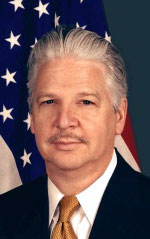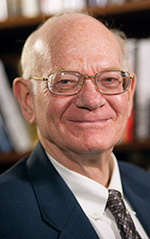Changing a Risk-Averse Paradigm at High-Threat Posts Abroad
Risk aversion is undermining diplomats’ ability to do their jobs. It’s an urgent problem, says an experienced panel that is proposing a solution.
BY GREG STARR AND RONALD E. NEUMANN
During the first 20 years of this century, America’s diplomats have been tasked to serve in more dangerous and highly threatened assignments than perhaps at any time since World War II. Both the executive branch and Congress saw the need to have a U.S. diplomatic presence in Iraq, Afghanistan, Yemen and Libya, even while wars were still being fought there and insecurity was rampant. Assignments to dozens of other high-threat posts continued throughout this period, as well.
The U.S. diplomatic establishment stood up and answered the call—officers from the Department of State, USAID and other foreign affairs agencies volunteered to leave their families behind and serve at our most dangerous and strategically important posts. Such service continues at many high-risk posts. Unfortunately, while serving in these tough circumstances, our officers too often operated with one hand tied behind their back.
With support from Congress, the State Department made great progress during this period replacing old, insecure and highly vulnerable facilities abroad with safe and secure embassies and consulates. The risk of losing an entire diplomatic platform and suffering massive loss of life and heavy injuries was greatly reduced. Though rocket attacks, complex assaults using car bombs and heavily armed attackers, and violent demonstrations were all too frequent, they were generally ineffective because of the new facilities.
Congress generously funded additional security assets such as security officers, armored vehicles and bodyguards to enhance mobility and travel outside our secure platforms. State has a remarkable record of conducting literally millions of moves outside the secure perimeter at our highest-threat posts with few losses, albeit using helicopters or heavily armed and armored convoys.
Despite these successes, at critical and high-threat posts members of the Foreign Service are rarely allowed to travel to meet sources, colleagues, counterparts or development partners in less than fully secured areas; nor are they allowed to move to unscheduled locations or travel to sites that are not fully secured. Thus, their ability to meet discreetly with subjects and sources or review remote programs is often very limited, as is their ability to observe and report on a country they are supposed to know with a high level of expertise. This is not the case with our U.S. military partners or members of the intelligence community. They, like the FBI and Drug Enforcement Agency, among others, all have different requirements for managing accountability and risk than the foreign affairs agencies have.
This disparity has led many officers—senior, midlevel and entry-level alike—to conclude that the call to make the security of our officers the highest priority has seriously undermined our ability to carry out what should and must be our highest priority—namely, fulfilling the national security and foreign affairs goals of the United States. They believe this is a problem that needs to be addressed urgently.
Risk Management Evaluated
The American Academy of Diplomacy pulled together an advisory group of senior retired officials to look specifically at this issue and established the project on risk management. The advisory group is led by many former senior diplomats with extensive experience in high- and critical-threat missions, as well as two other former assistant secretaries for diplomatic security.
Based on their previous experience as ambassadors and assistant secretaries in the Department of State, advisory group members report that chiefs of mission (COMs), deputy chiefs of mission (DCMs) and regional security officers (RSOs) operate today on the assumption that decisions made to allow travel outside the mission in high-threat environments that then result in death or serious injury will be judged in terms of accountability, with the presumption that someone erred in their judgment.
Too frequently, they note, the decision by COMs, DCMs and RSOs at critical-threat posts is to avoid risk by denying a travel request. The deciding officials feel compelled to be able to demonstrate that the purpose of the travel outweighs the risk of injury. Approving travel to a location that is anything other than a fortified compound, usually a host-government compound for meetings with host-government officials, is difficult to justify when the risk is high and security protocols cannot be met. When the travel is to locations that are not secured, for meetings with individuals who are not host-government officials—what we would categorize as important but normal diplomatic and programmatic activities—a request is virtually impossible to approve under current conditions.
The result, in short, is that the formulation and execution of national security policy is hindered by the lack of access to foreign contacts. While acknowledging that there are increased threats and dangers for staff operating in high-threat countries, the security versus risk equation for travel outside our missions is too heavily weighted toward eliminating risk to our personnel. Underlying this assessment is a basic judgment that the first function of our diplomats is to serve American national interests and policy goals. Diplomats are not soldiers, and every effort should be made to mitigate risk. But when security is defined as the first priority—as it too often has been—they are unable to perform their mission, and the basic purpose of having diplomats abroad is undermined.
Risk aversion at higher-threat posts obstructs the performance of the most basic functions of a diplomat abroad.
Risk aversion at higher-threat posts obstructs the performance of the most basic functions of a diplomat abroad. Those functions—to influence host governments and other foreign interlocutors; to explain, defend and advance U.S. policies and objectives; and to gain the information and access needed to analyze political, social, economic and programmatic developments based on firsthand contacts and observations in a foreign country—all require personal contact.
Diplomacy is an incremental business in which numerous contacts and observations contribute over time to generate larger results. Diplomats are analysts, policy influencers, persuaders and negotiators. Secure telephone technology and advances such as video calls and video conferencing can supplement traditional meetings. But they cannot substitute for building personal relations and trust with foreign contacts, without which real understanding of sensitive issues is not possible. This is particularly true when the sensitivities concern internal foreign political concerns.
There are reasons for this state of affairs, but AAD believes that change is needed. In discussion, we agreed that one of the major factors in keeping diplomats cloistered is the language and structure of the Accountability Review Board provision in the Omnibus Diplomatic Security and Antiterrorism Act of 1986. That law is widely interpreted within the Foreign Service as possessing an overriding requirement to find someone at fault if there is a security incident involving serious injury or loss of life; the first determination after identifying whether injury or loss of life is a security issue is whether the security systems and procedures at that mission were adequate. Since the systems in place when life is lost are almost never deemed “adequate,” this formulation leads inevitably to the issue of “who was accountable.”
In 1986, when the act was passed, there was a view in Congress, shared by many in the Foreign Service, that the State Department was not taking security sufficiently seriously. Since then, however, much has changed. Security has been greatly improved. At the same time, today effective diplomacy to meet national interests requires finding a way to engage more broadly, even in high-threat locations. We believe it is possible. Progress will need change in three areas simultaneously.
Three Areas for Change
First, the language and structure of the Accountability Review Board mandated in the Omnibus Diplomatic Security and Antiterrorism Act of 1986 must be reformulated. AAD does not equate the levels of acceptable risk for the Foreign Service abroad with the levels of risk acceptable for U.S. military assets engaged in combat operations. However, Foreign Service officers are frequently assigned to high-threat diplomatic missions abroad, and they understand there are risks that must be accepted. Currently, embassies are hampered by an out-of-date accountability process that is essentially at odds with the current requirement to take reasonable risks in the performance of duty.
AAD recommends a reformulation of the law to put in place a system similar to that of other executive agencies. In the event of a serious security incident, such a system would call for an internal review to evaluate precautions taken against known risks and to evaluate lessons learned in a report to the Secretary of State who would, in turn, inform Congress of the results. This review would take into account the need to take reasonable risks balanced against the understanding of threats known at the time.
This would bring the process more in line with that used by the Department of Defense and the intelligence community. Equally important, it would be a tangible message to the U.S. Foreign Service that Congress understands and supports the need to take reasonable risks in the performance of diplomatic and foreign aid operations abroad. It would signal that Congress wants to assist in developing a culture where the security of our personnel remains important, but the priority must be implementing the foreign affairs policies and operations of the United States.
Second, the Department of State must identify best practices and new techniques on how to operate in high-threat locations. Certain cadres of officers—including political officers, consular officers, USAID field and project officers, and others—would receive required training in advanced operational techniques and procedures to allow them to operate as safely as possible while accepting increased levels of risk. This will take a joint effort by the Foreign Service Institute, the Foreign Affairs Security Training Center (FASTC) and other agencies to determine best practices. In addition, management officers at various levels will require additional training in managing threats and risk.
Finally, the culture of risk aversion that has taken hold in the foreign affairs agencies over years must be addressed to implement legal changes and improved tactics and procedures. This will require both education and hard skills training. Senior and midlevel officers serving domestically and in overseas positions will require improved education in how to identify and manage threats and risks while balancing the need to fulfill foreign affairs goals and objectives. Decision-makers responsible for approving operations abroad that entail higher risk (normally DCMs and RSOs) must have more than just new tools and training. They must also have confidence that the foreign affairs agencies and Congress understand that the highest priority is fulfilling major national security priorities, not solely keeping people safe.
Careful judgment of the importance of individual policy objectives balanced with risk and threat mitigation measures will always be necessary and never clear-cut in the process of approving a plan or activity. All aspects of the problem—importance of the goals, risk and mitigation—must be part of the judgment when things go wrong.
Read More...
- “We Have to Be There,” by Anne Woods Patterson, The Foreign Service Journal, September 2019
- “Securing Diplomacy for the Next Quarter-Century,” by Gregory Starr, The Foreign Service Journal, March 2017
- “American Diplomacy at Risk: A Report from the American Academy of Diplomacy,” by Ronald Neumann, The Foreign Service Journal, July-August 2015






